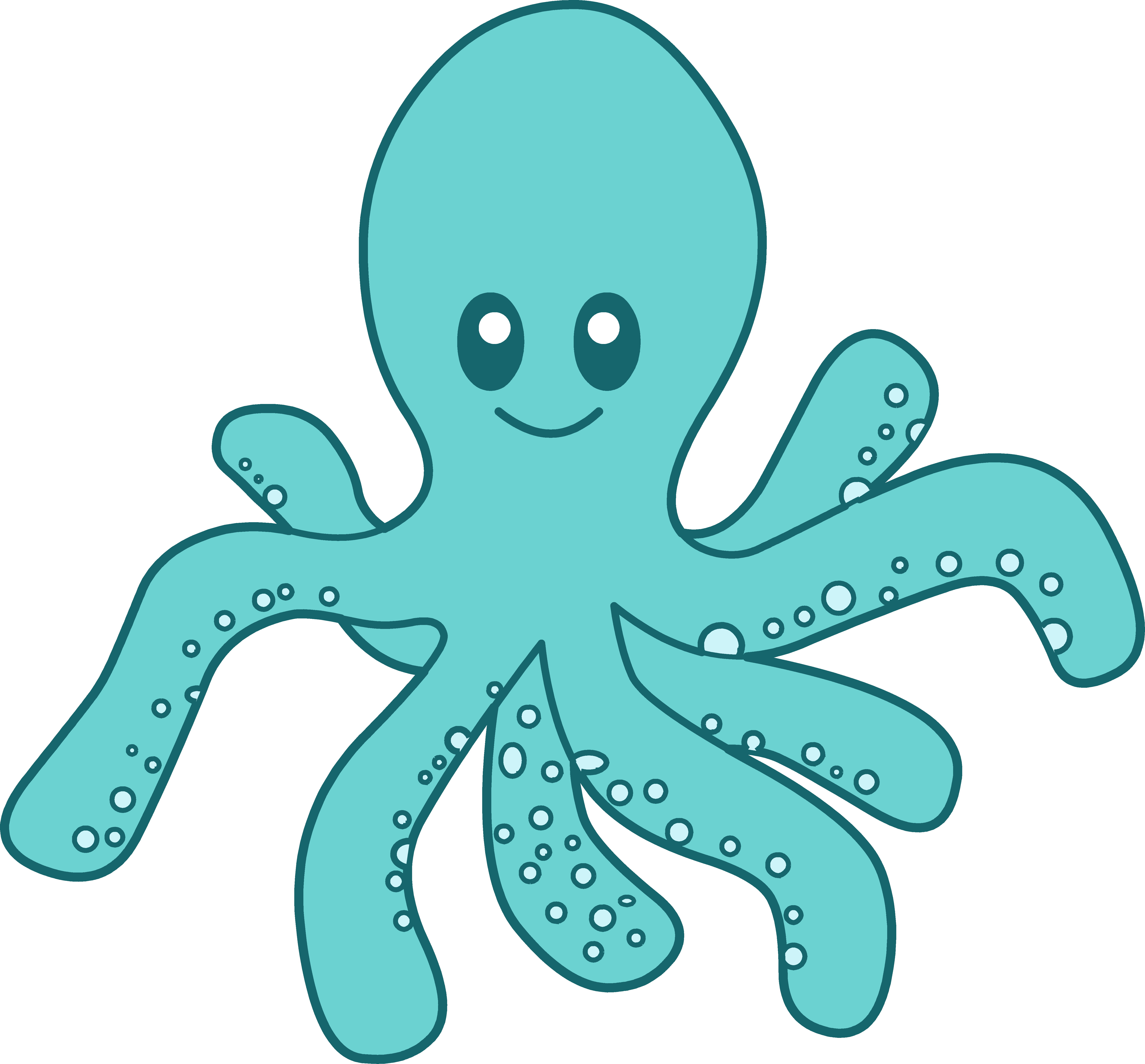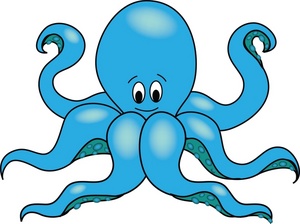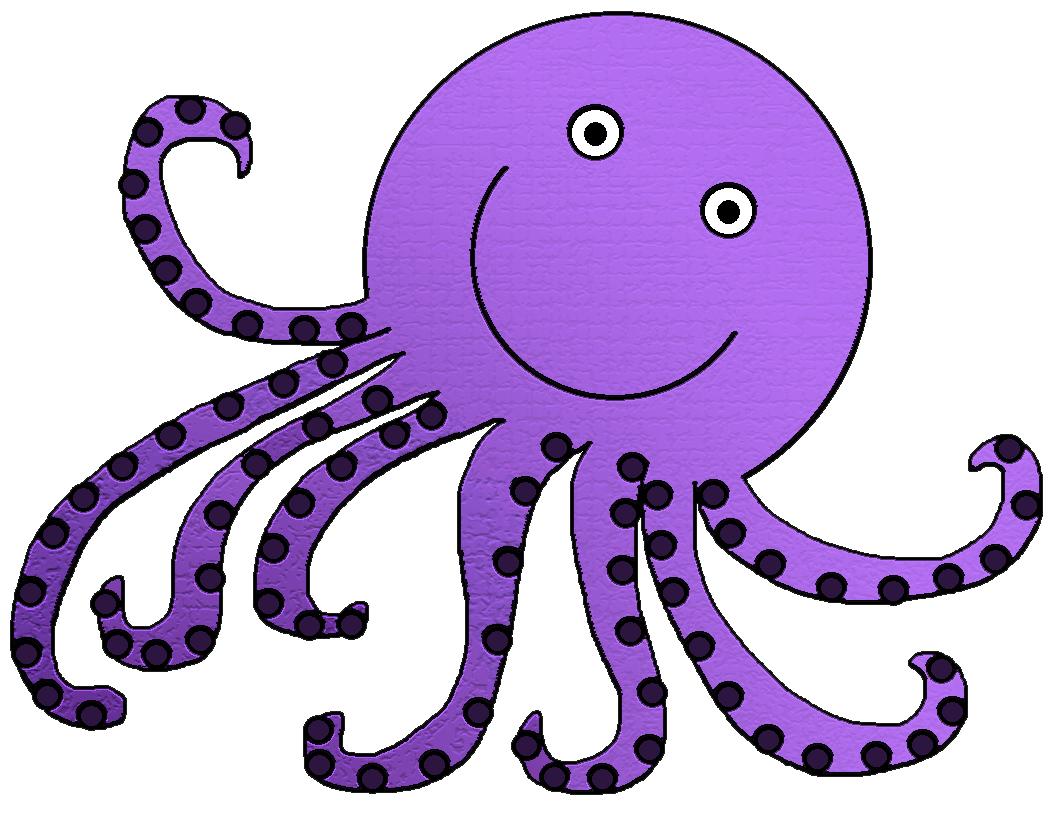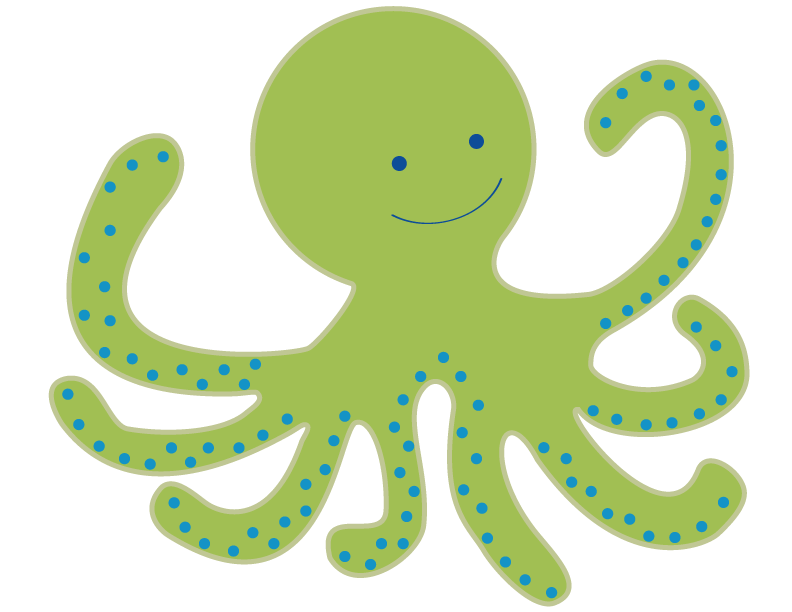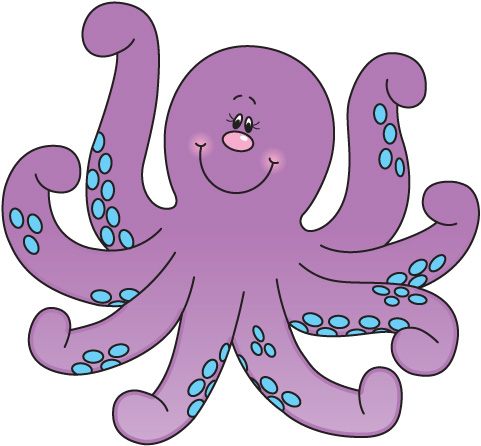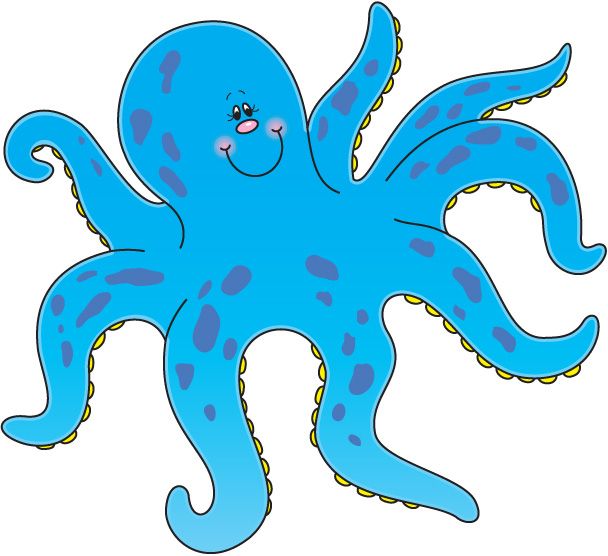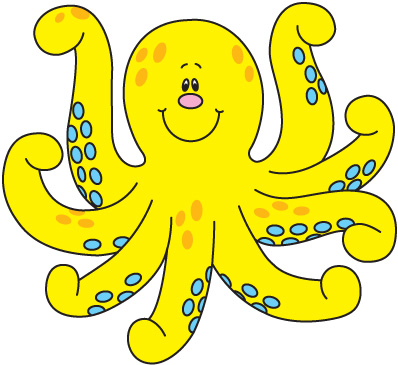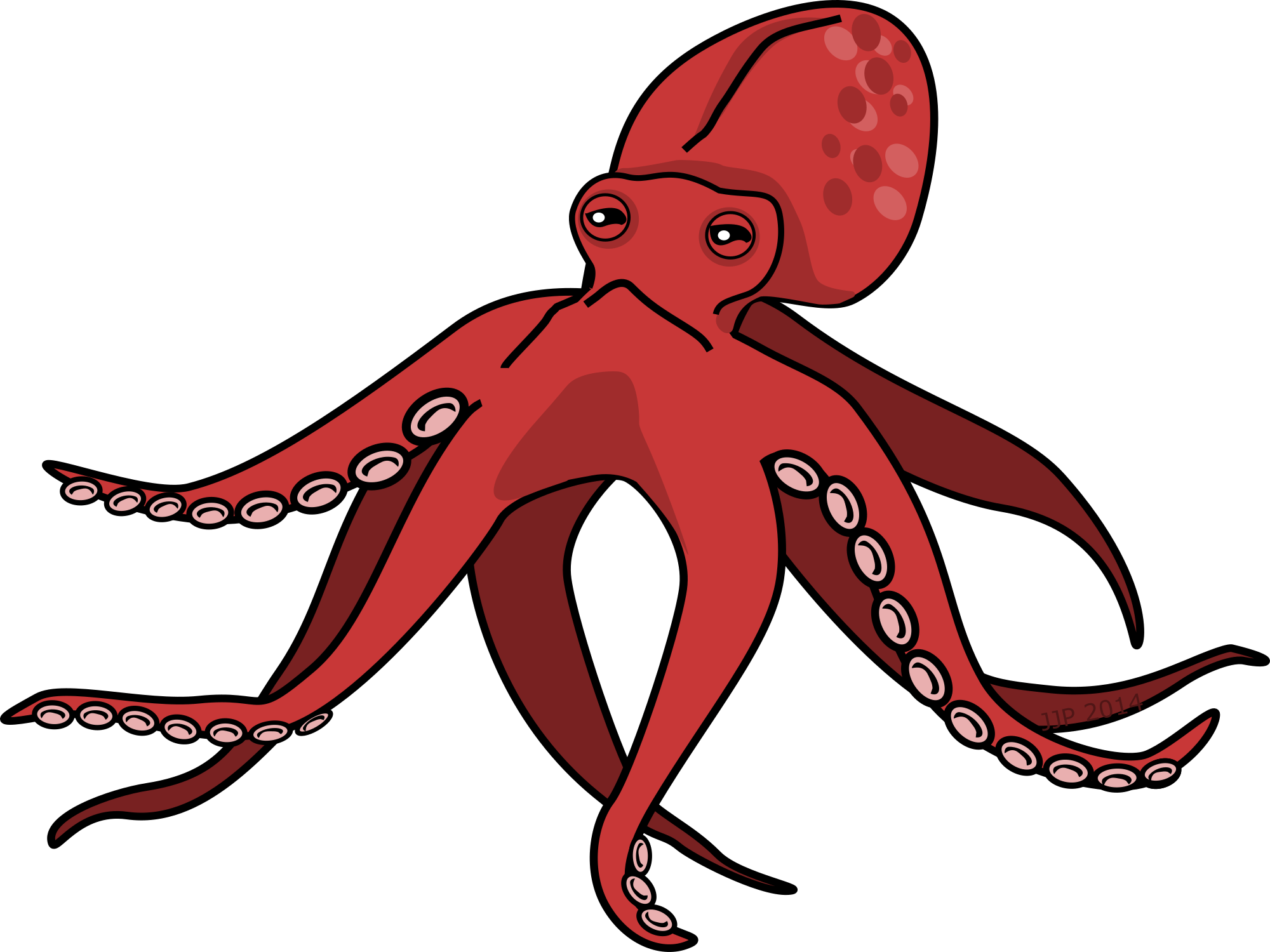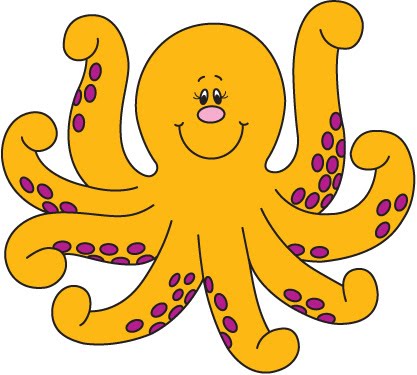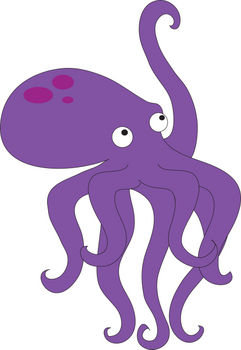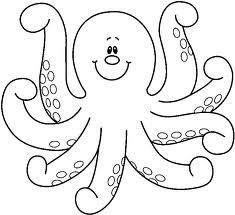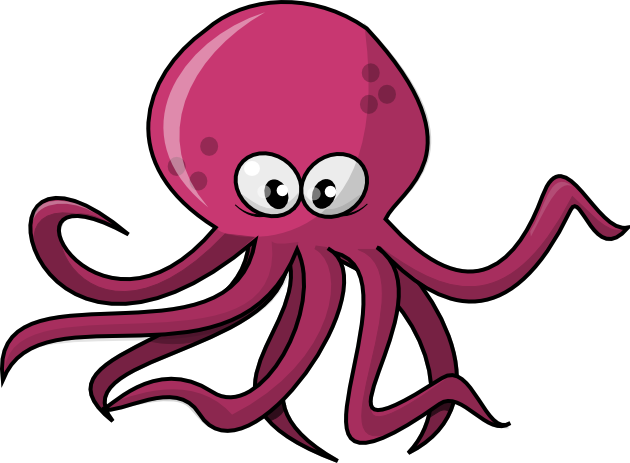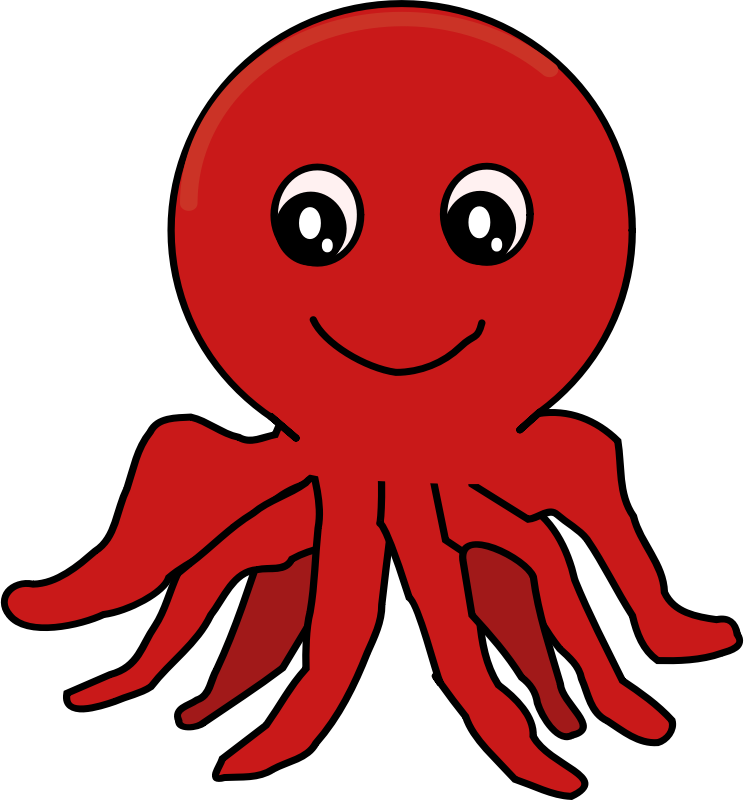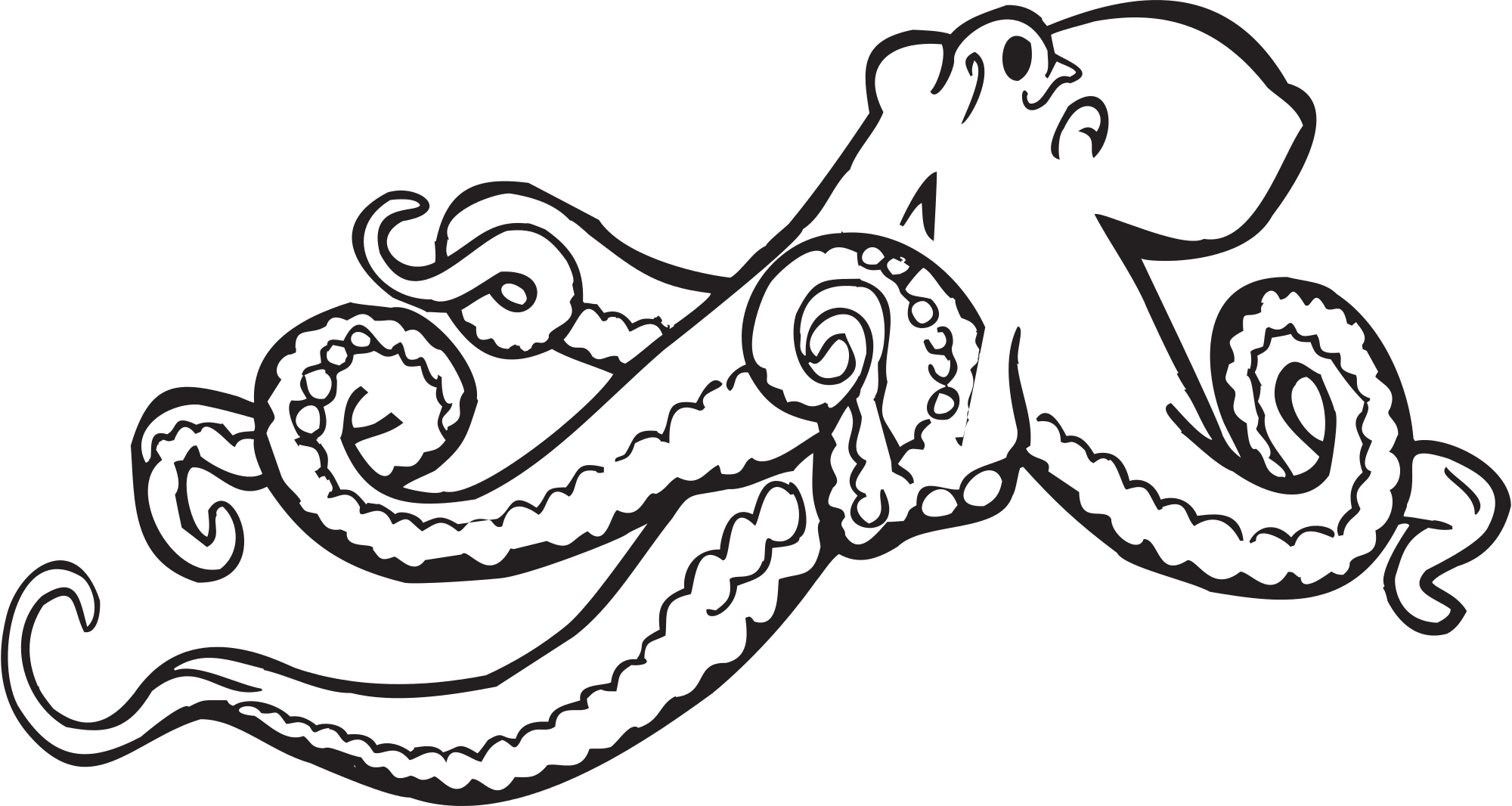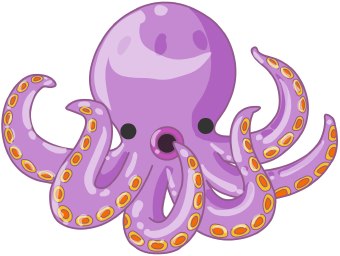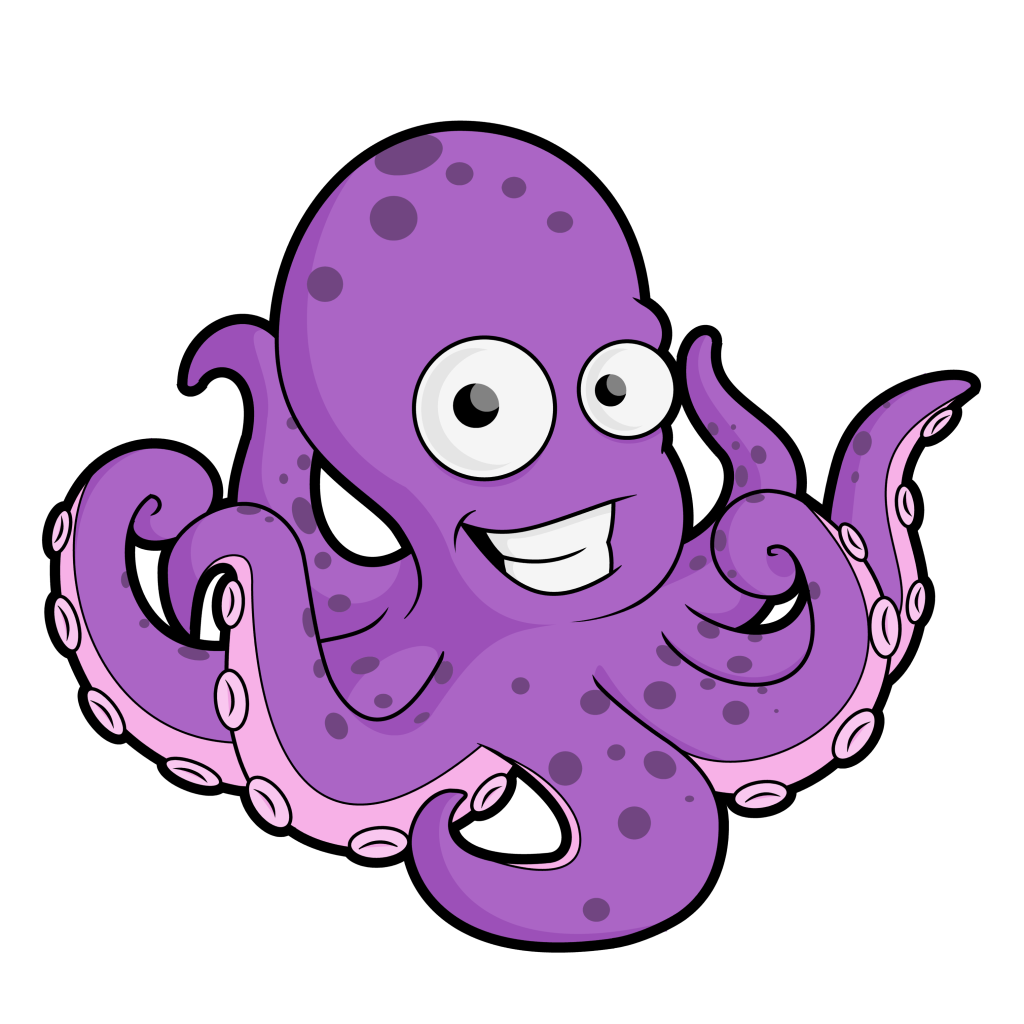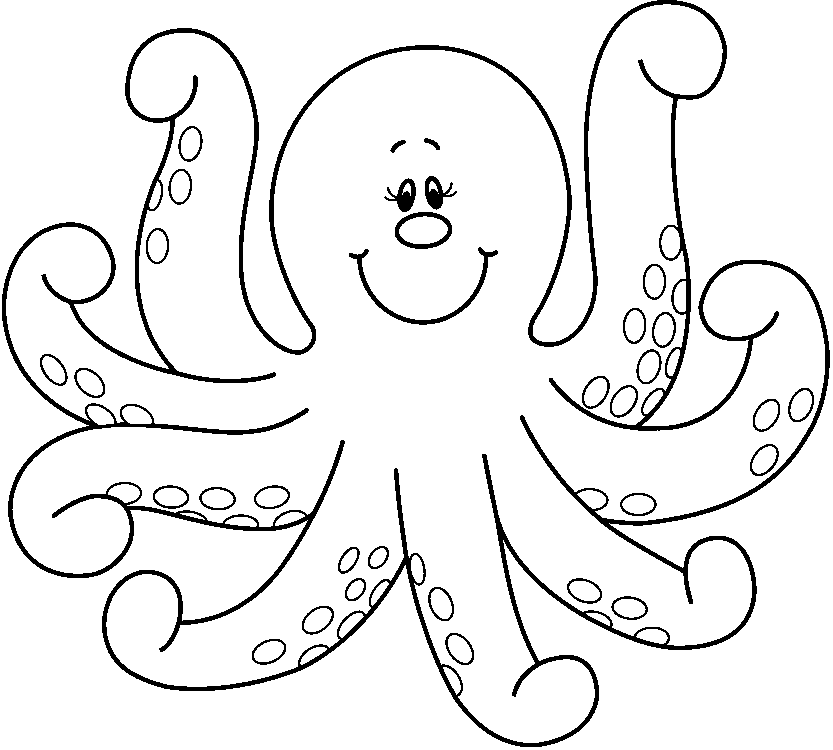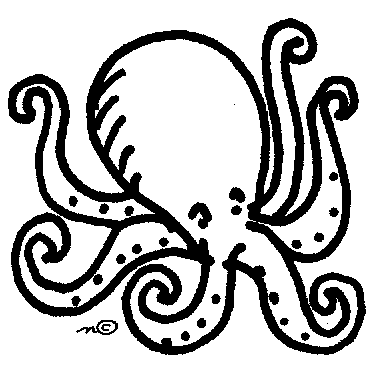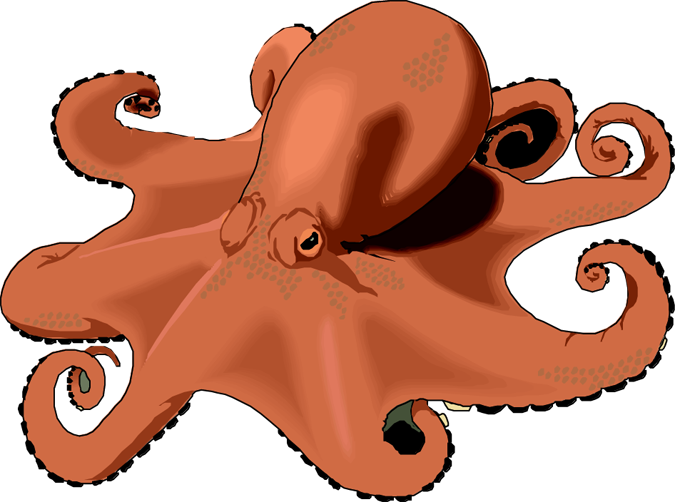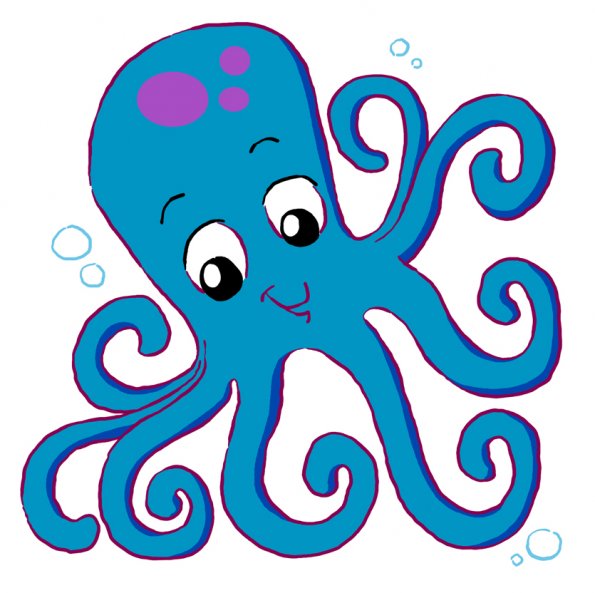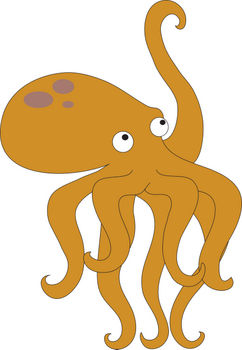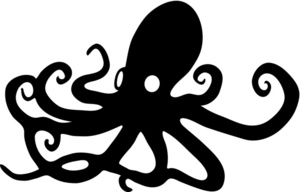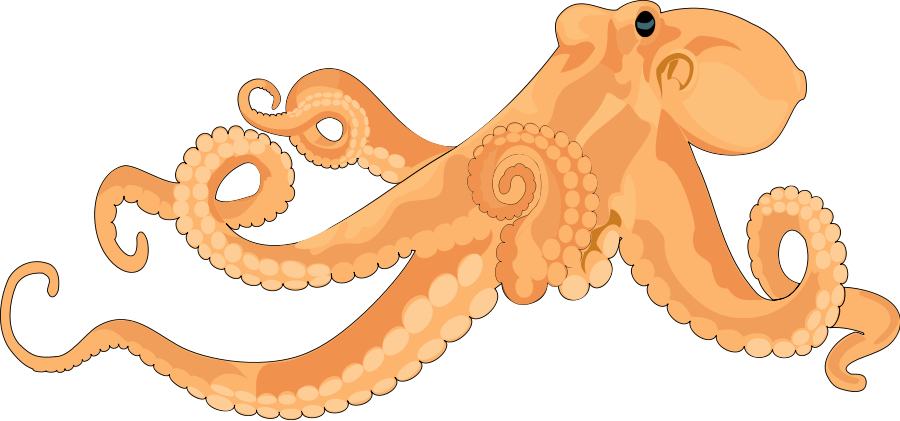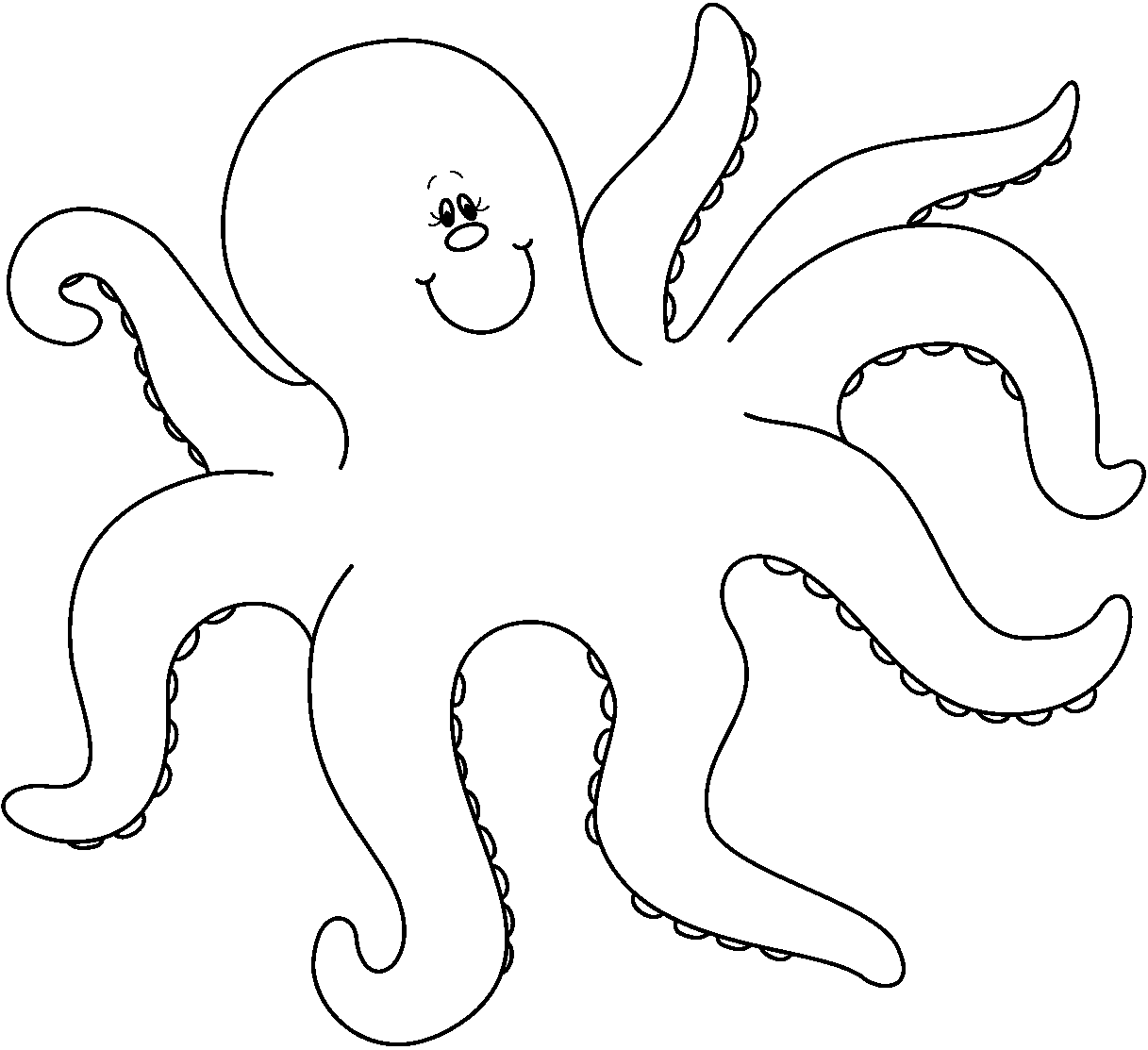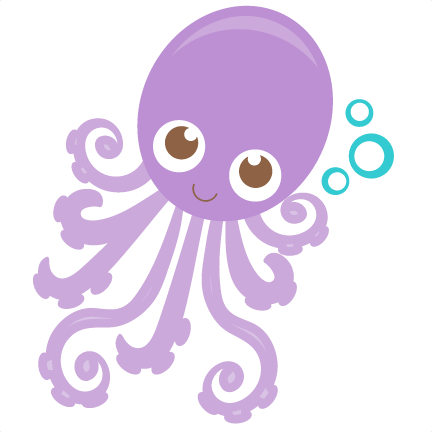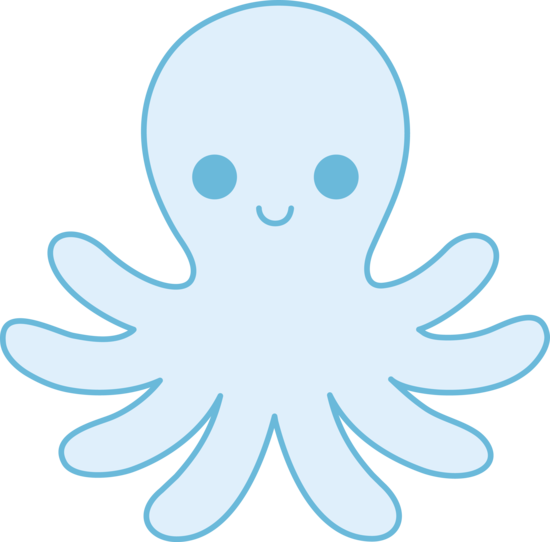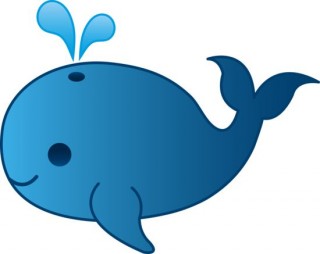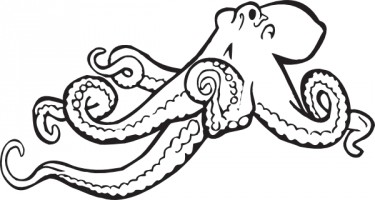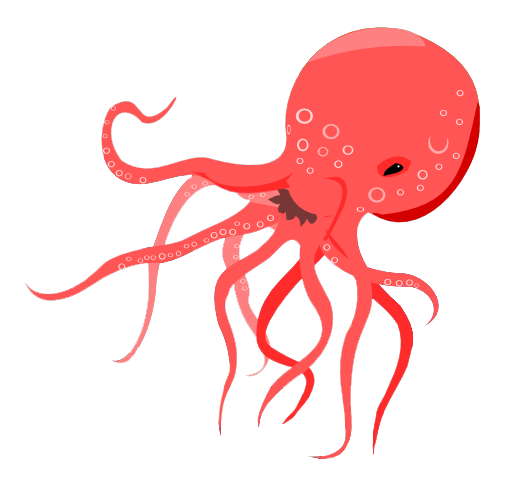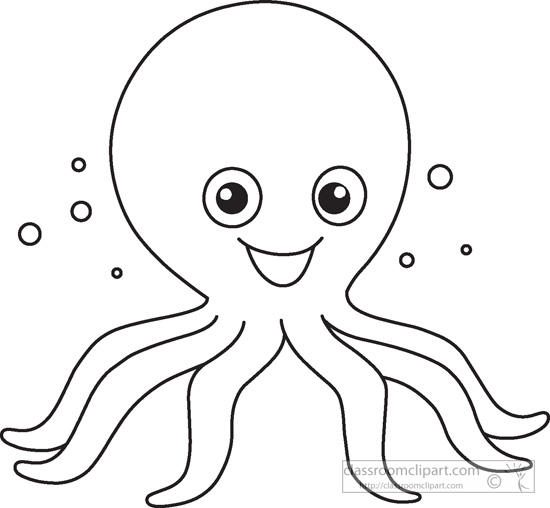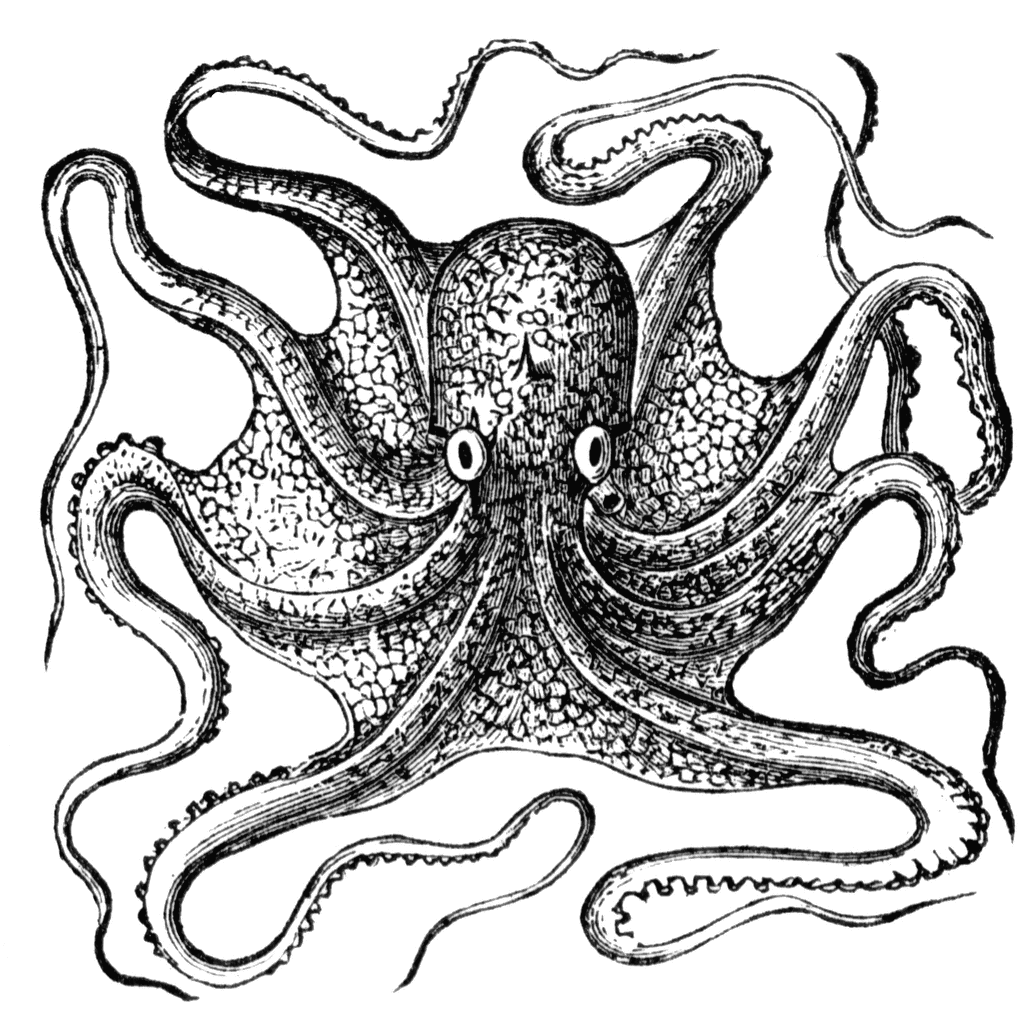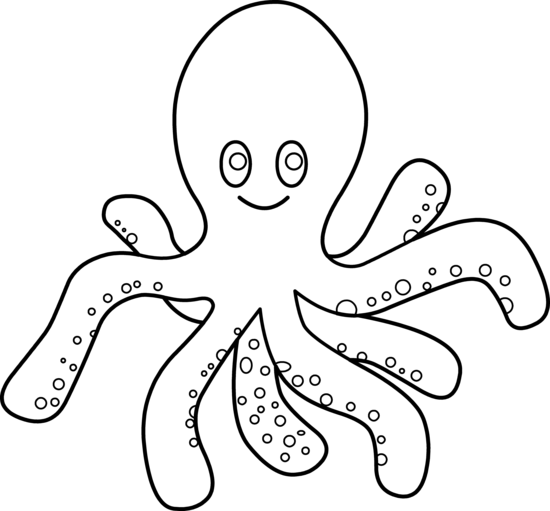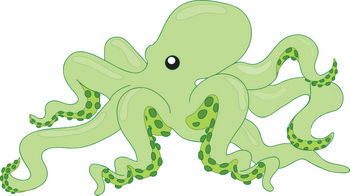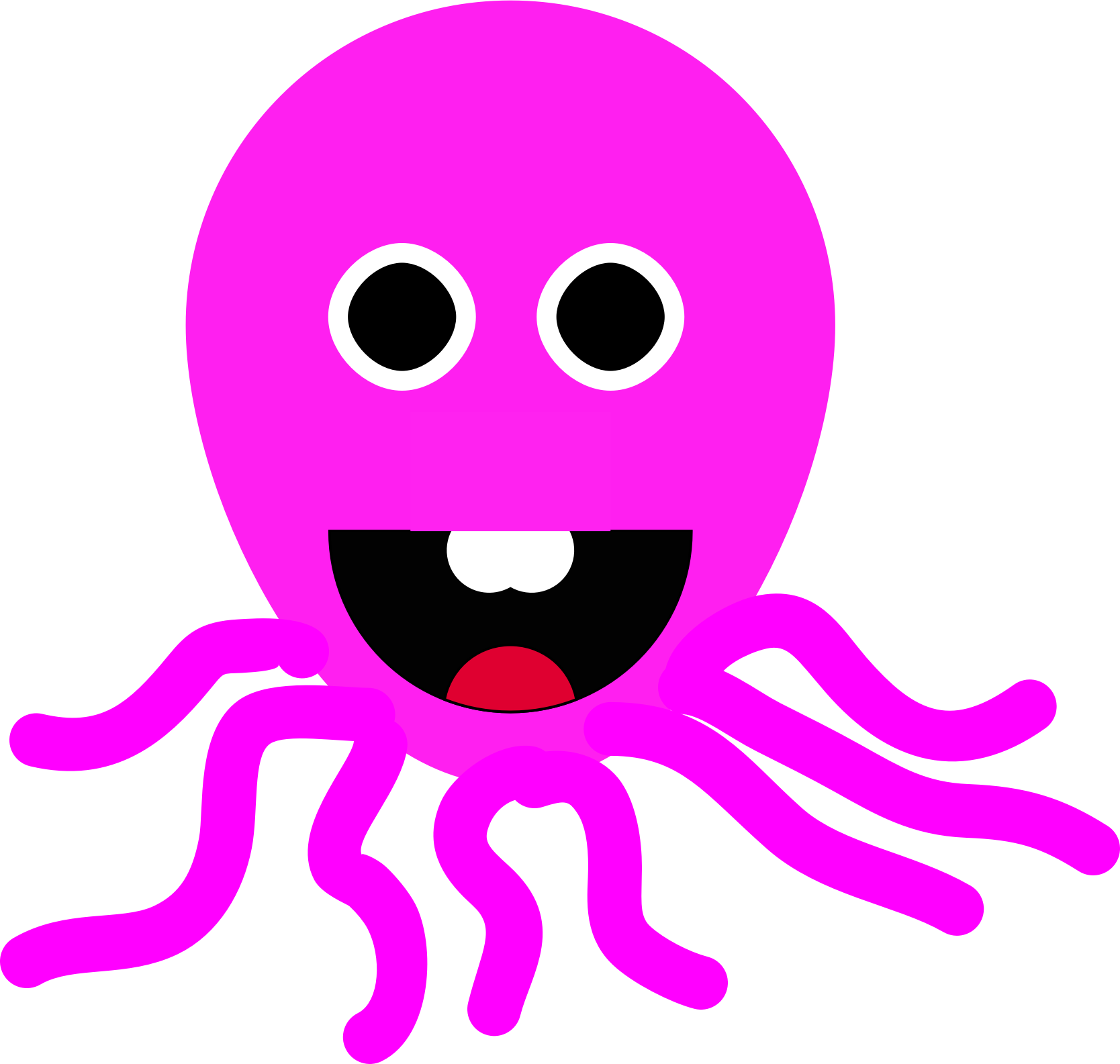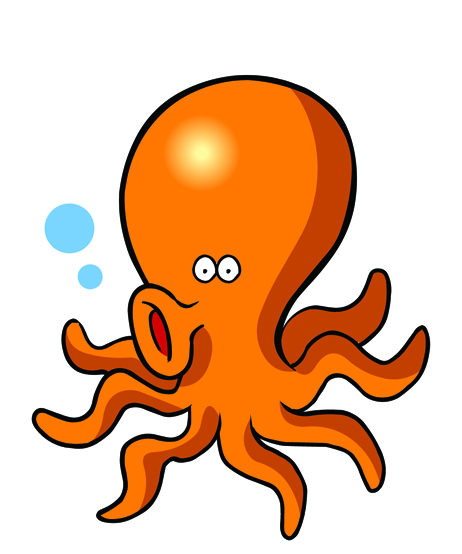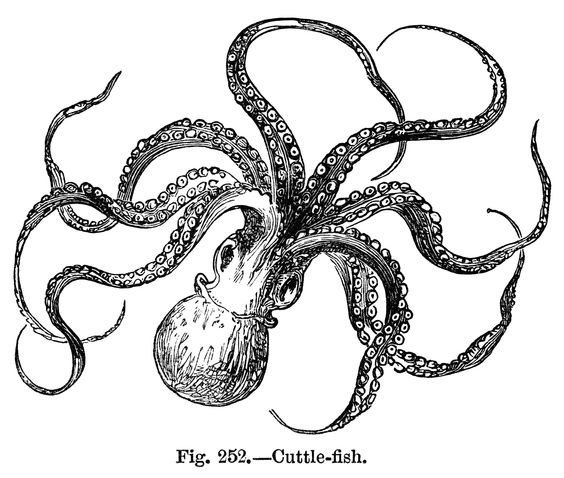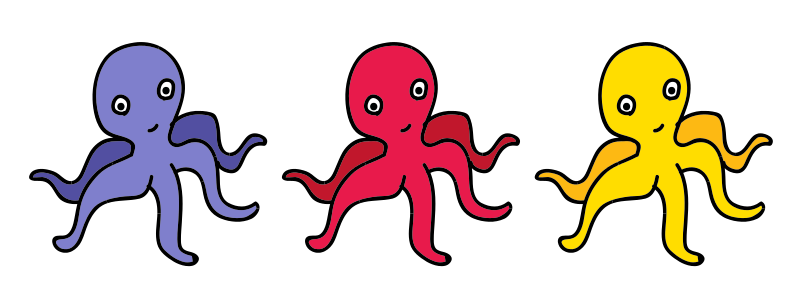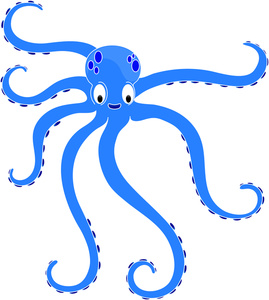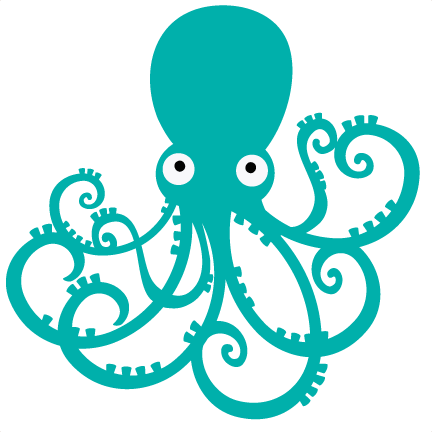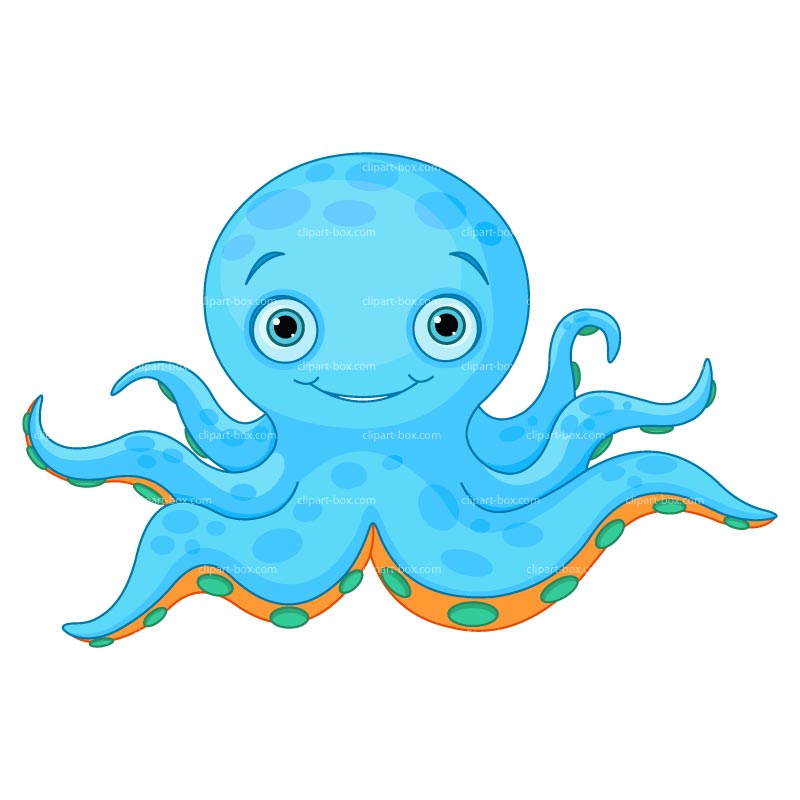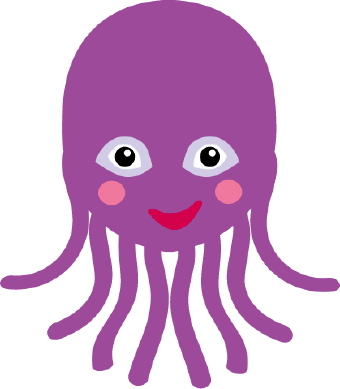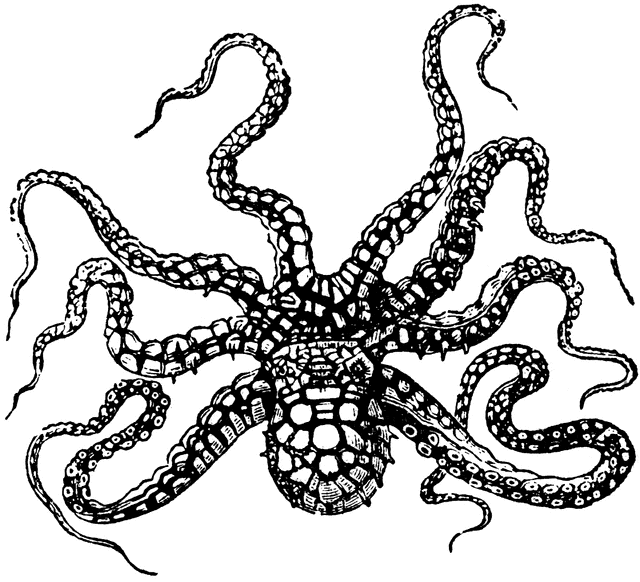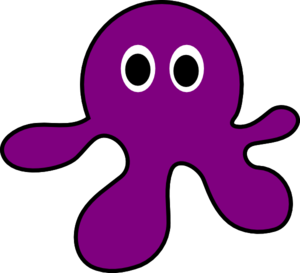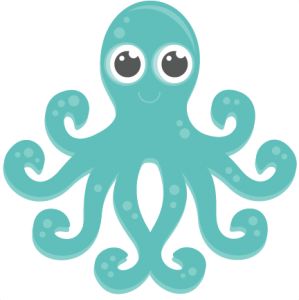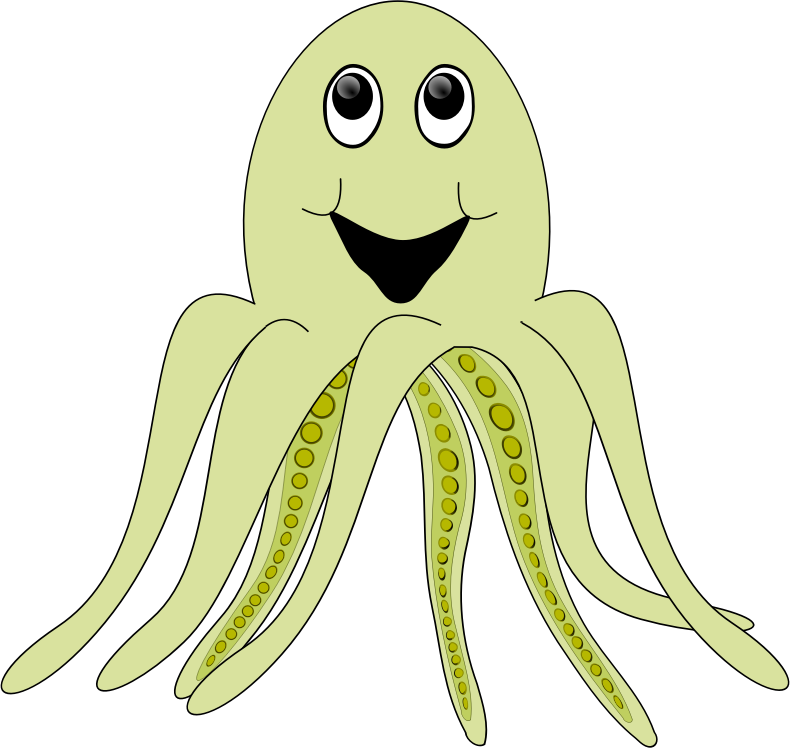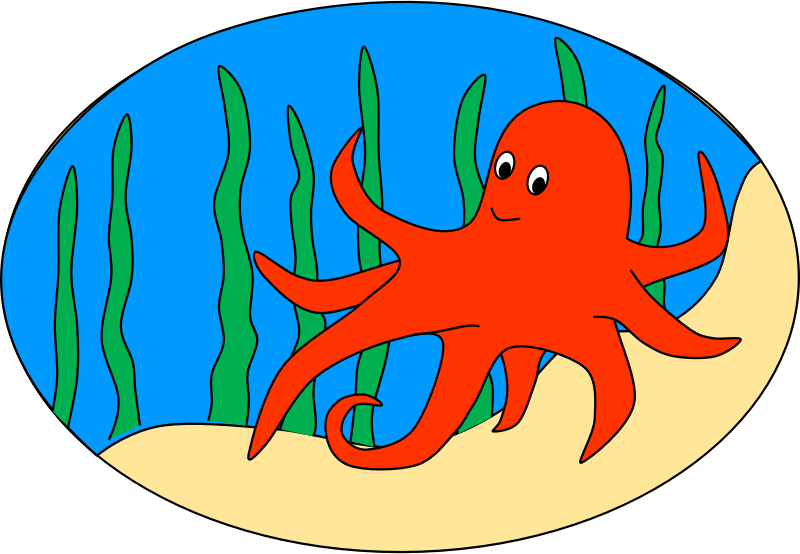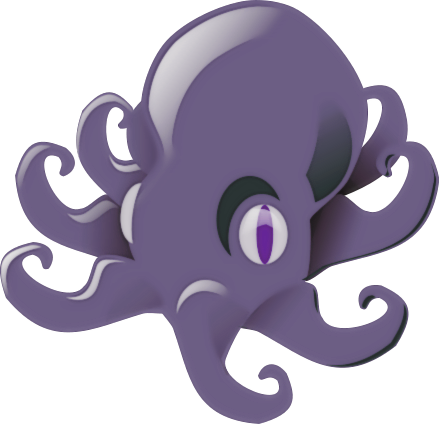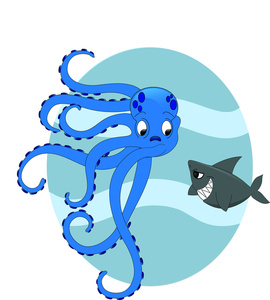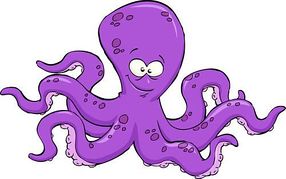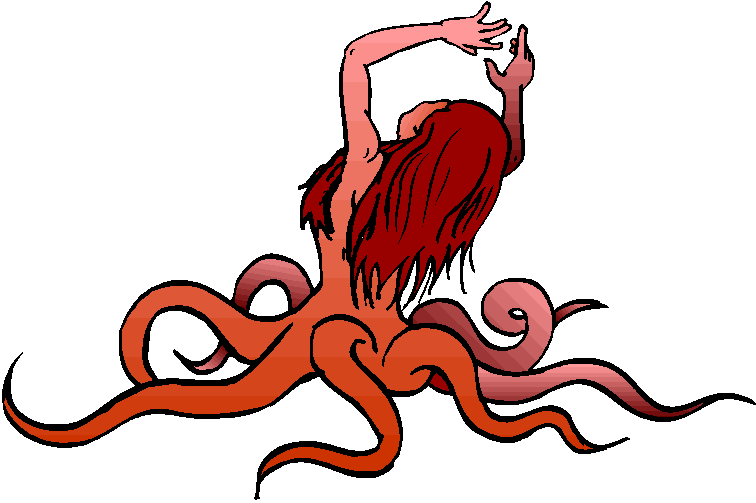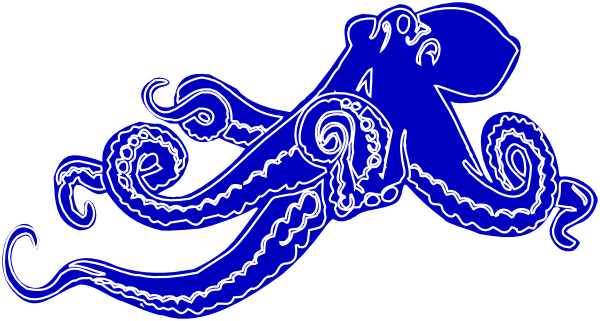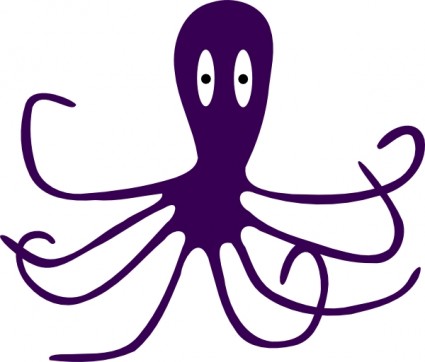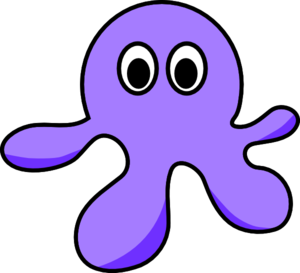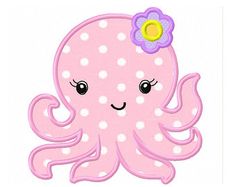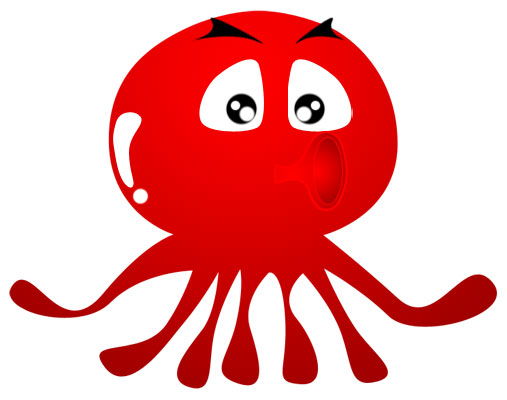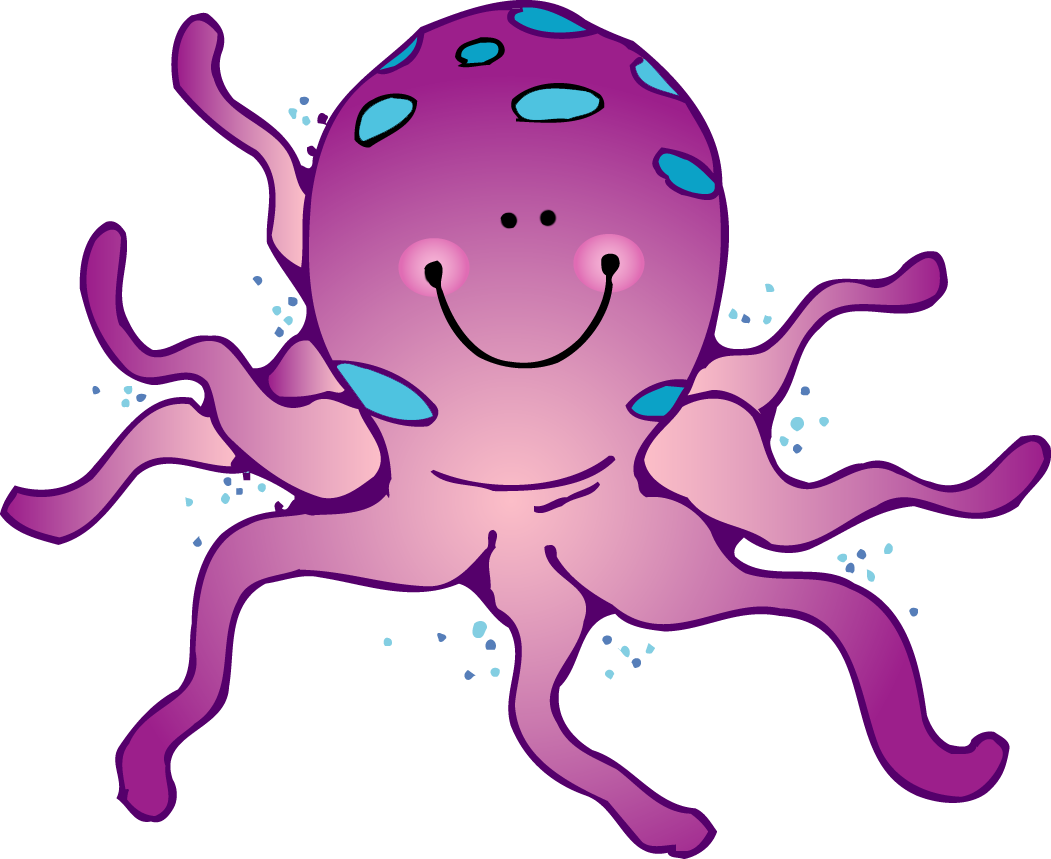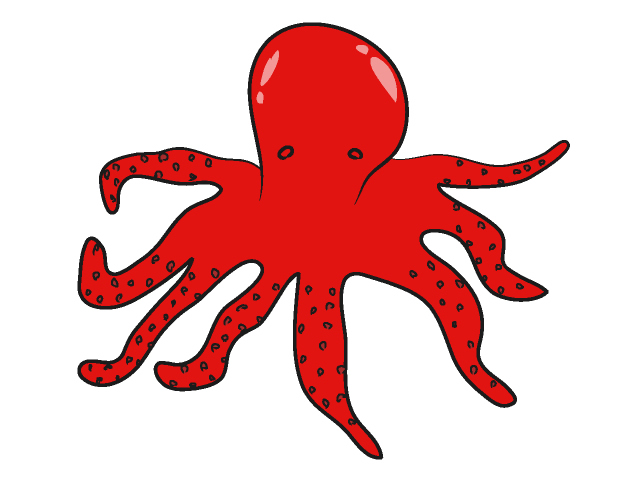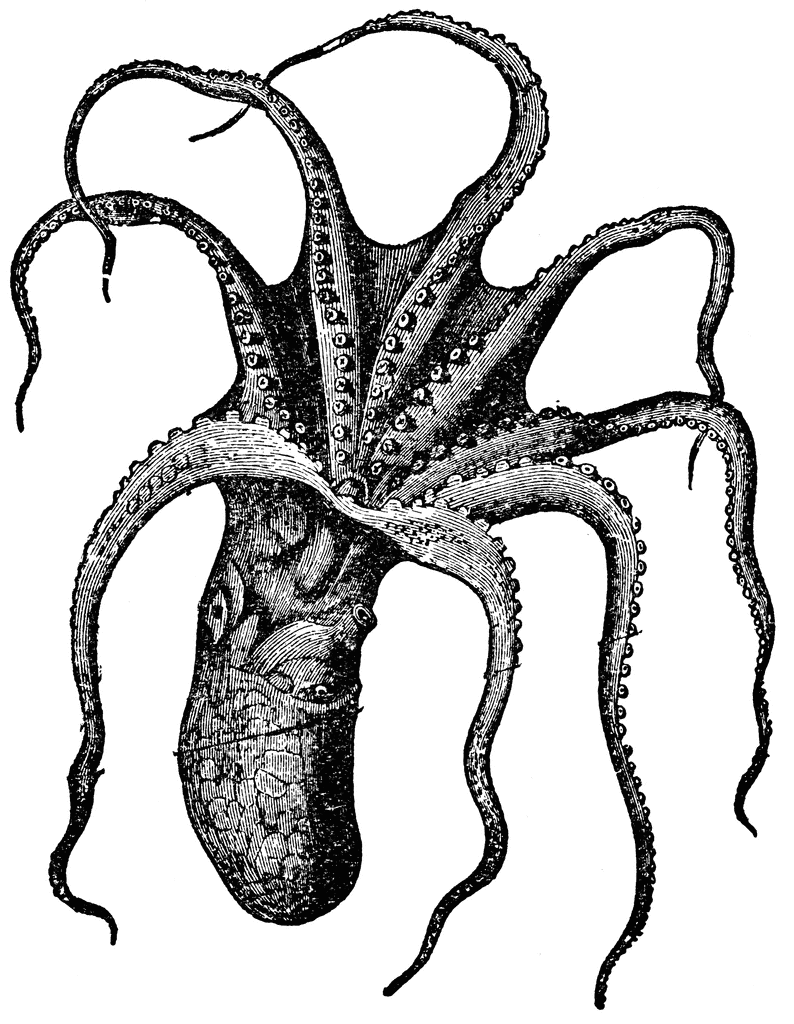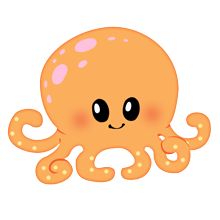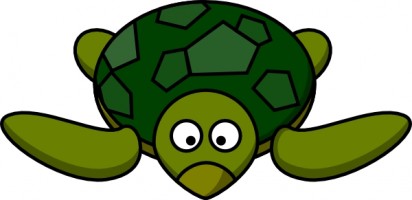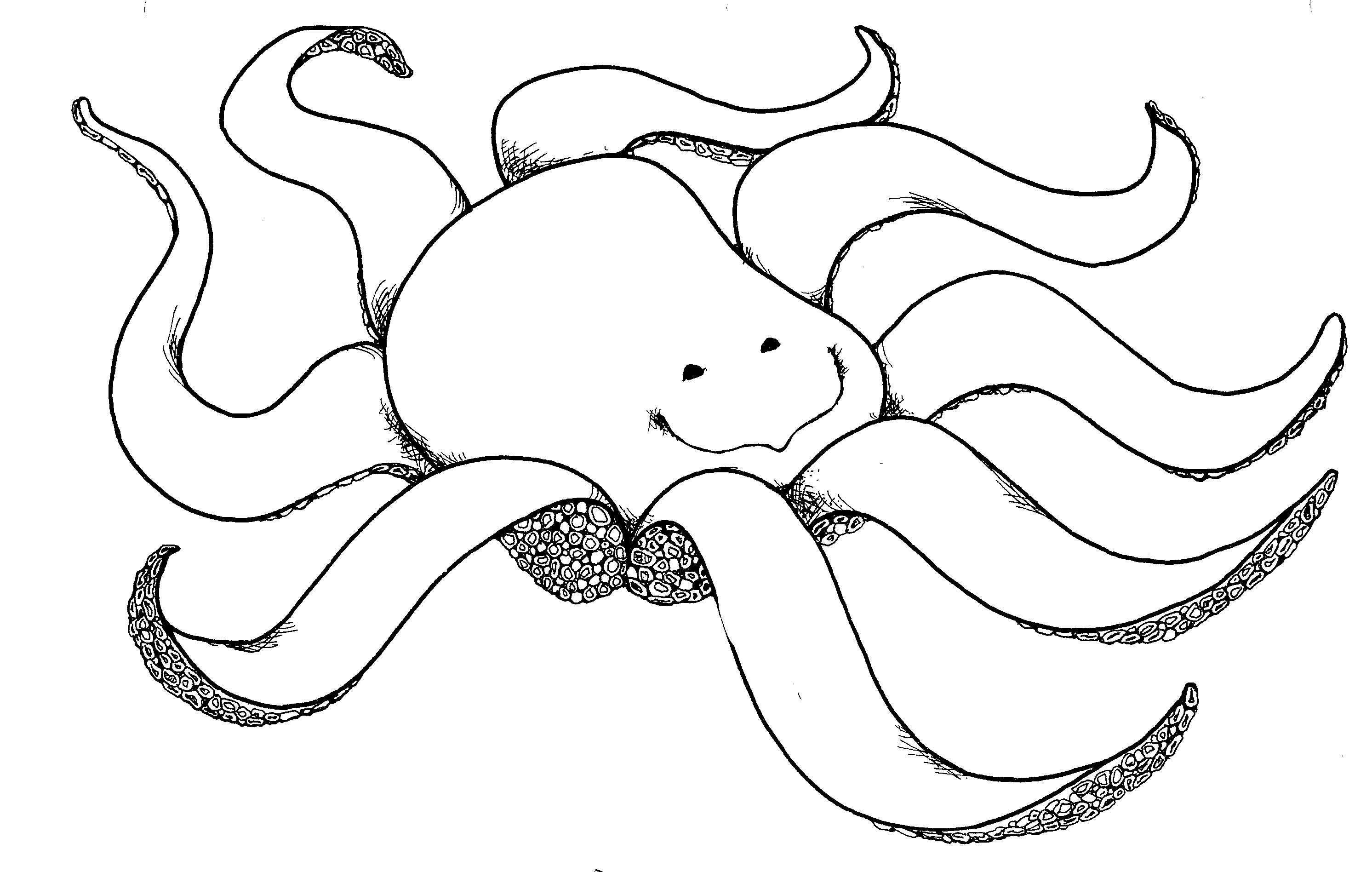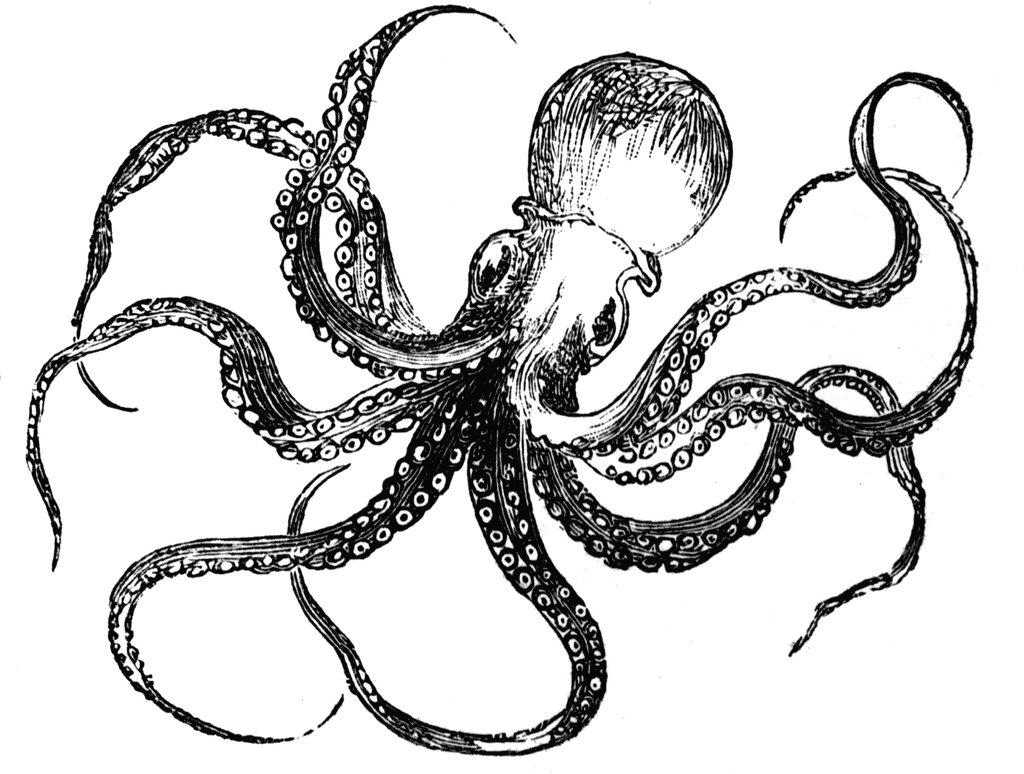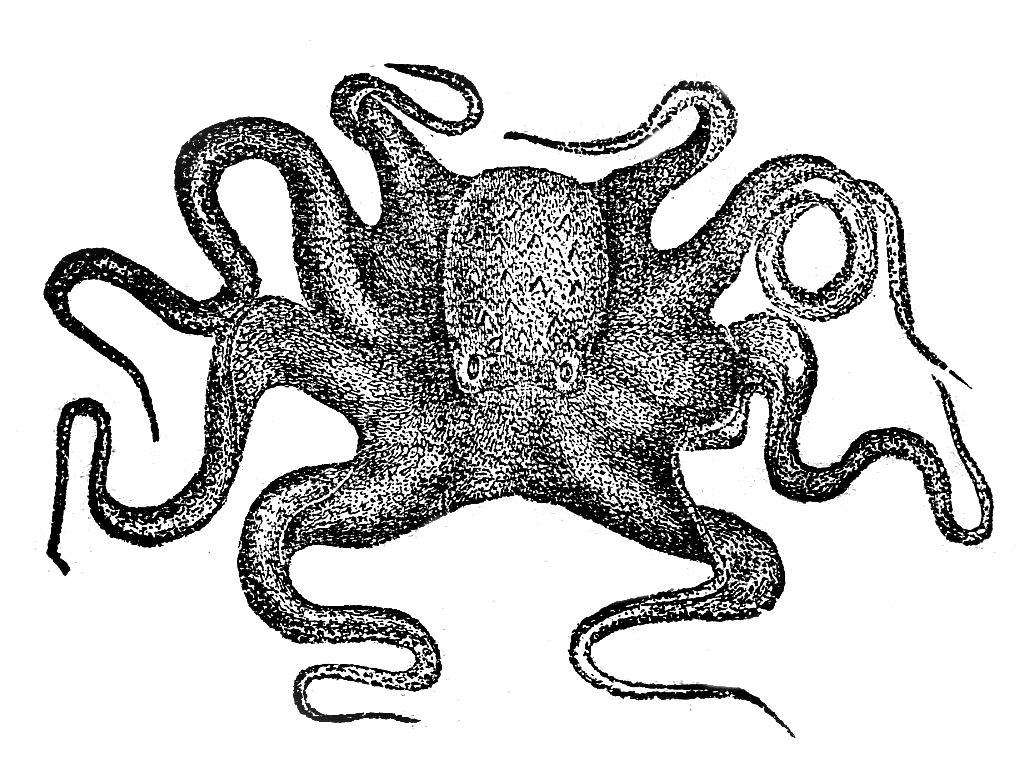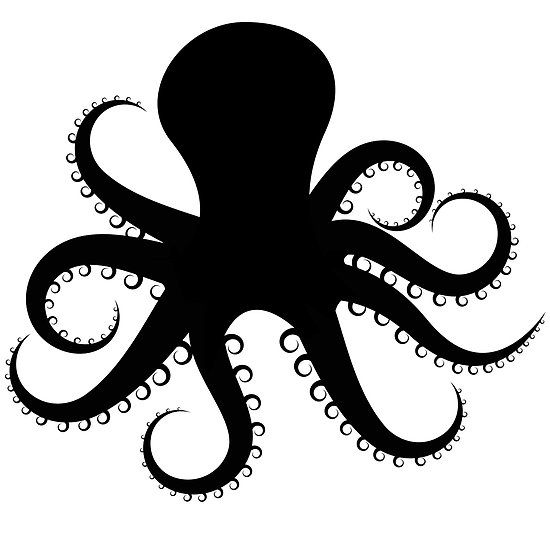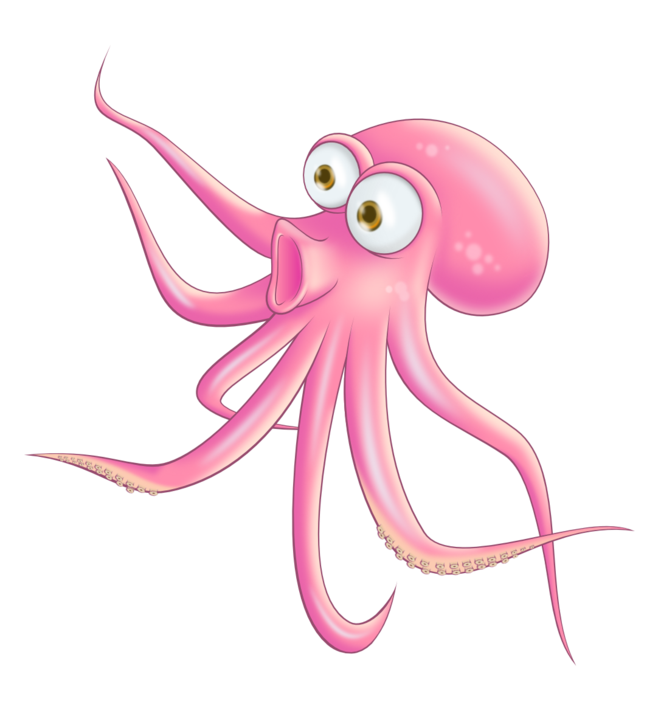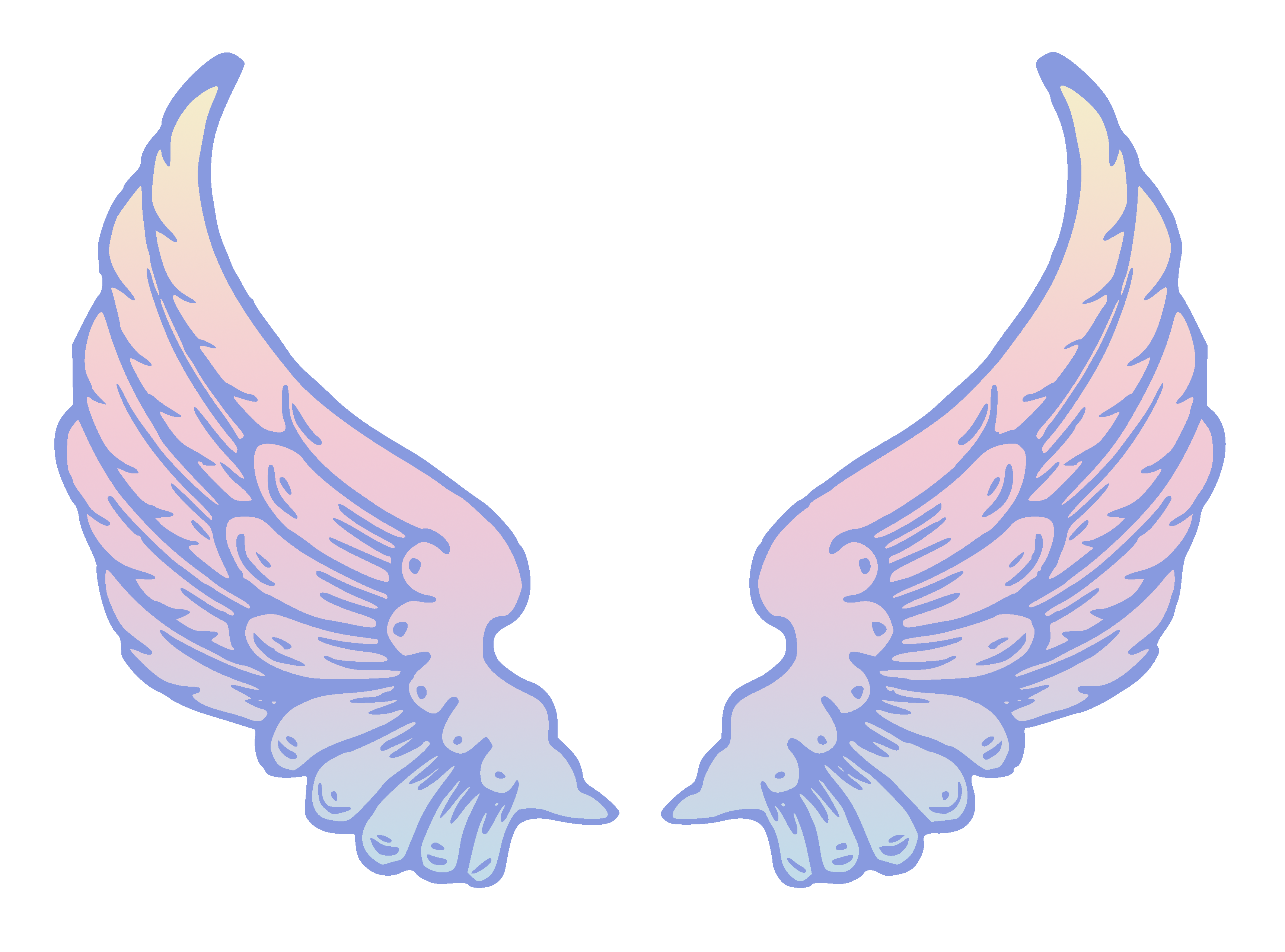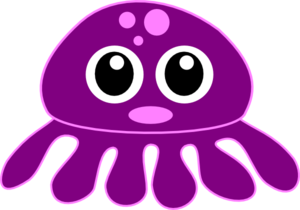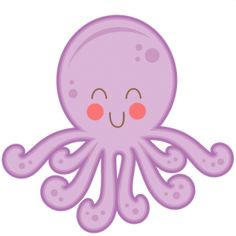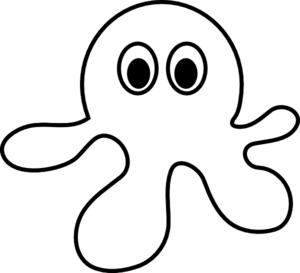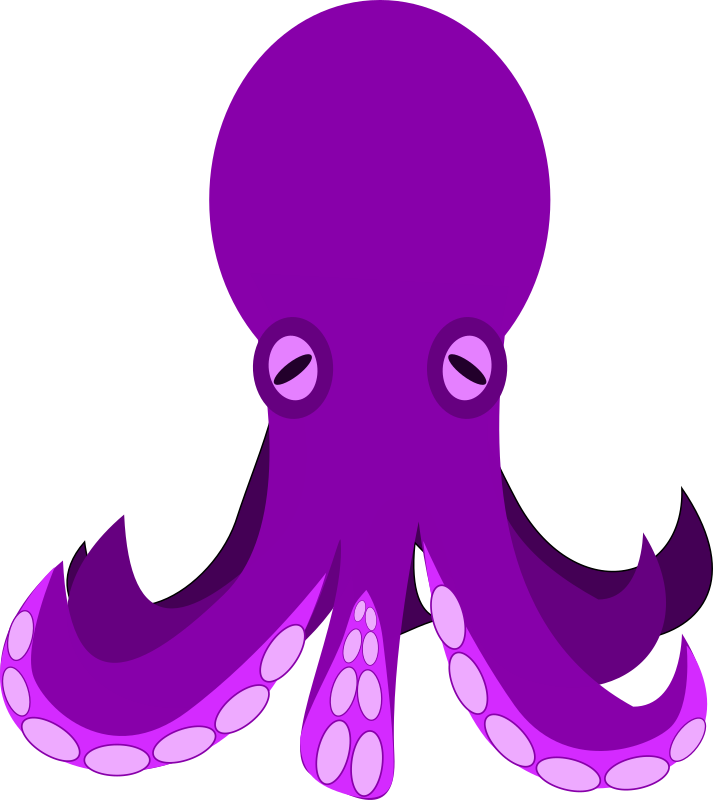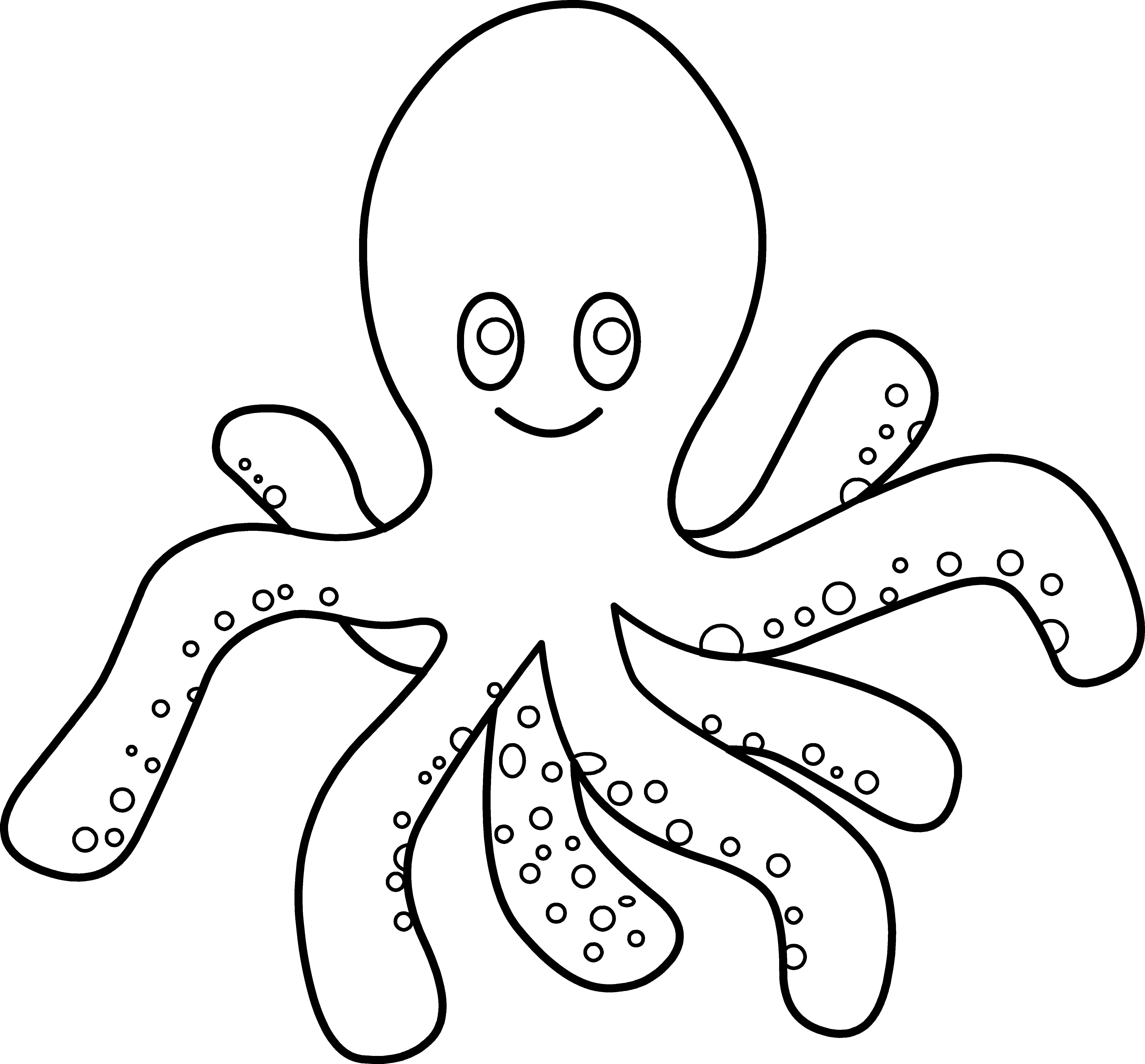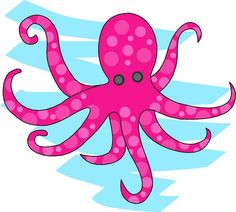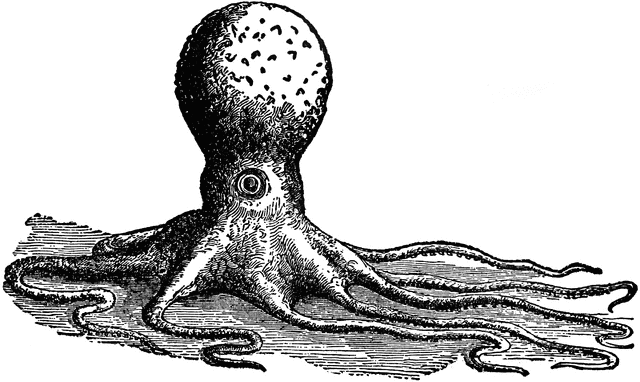Octopus Clip Art
The octopus is a fascinating marine invertebrate, classified among the cephalopod family which also contains cuttlefish and squid. With their eight arms, bulbous head, large eyes, and mantle, octopuses have a very distinctive look. These creatures are abundant in oceans around the world from shallow tide pools to deeper waters. Octopuses are well known for their intelligence, problem-solving abilities, defense tactics, and ability to camouflage remarkably well, making them adept hunters and masters of disguise.
Octopus Anatomy
The octopus anatomy is unique compared to most other sea creatures. They have a soft, oval-shaped mantle which houses all their vital organs, including the reproductive, digestive, and nervous systems. Octopuses have three hearts pumping blue, copper-rich blood throughout their body. At the center of the arms is the mouth, a sharp beak used to bite prey and tear flesh. Above this lies the octopus’s head, which has two large, highly-developed eyes for keen vision. Their most iconic feature is the eight sucker-lined arms, which are used for grasping, sensing, and locomotion. These slim yet strong arms can extend nearly 5 times their relaxed length.
Octopus Behavior
Octopuses spend much of their time hunting, scavenging, exploring, or hiding in dens. They search through cracks and crevices probing with their arms, mostly active night. As solitary creatures they each establish their own territory with a primary den. Octopuses are not social animals other than brief moments mating. Male octopuses often die shortly after reproducing and females perish once their eggs hatch. They have short life spans from just 1-3 years on average depending on species. Their behaviors reflect advanced intelligence from problem-solving skills to personality quirks. Memory, recognition, and learning also allow them to adapt quickly to new situations.
Octopus Intelligence
Octopuses possess unusually high intelligence compared to most invertebrates. In behavioral experiments, they have demonstrated capabilities for observational learning, creativity, communication, even deception. Their brains can encode short and long-term memory. Octopus intelligence is believed to stem from the central nervous system distributed through the arms, which each have capacity for some autonomous decision-making. This helps octopuses multitask, reacting quickly to stimuli. Learning, memory, and context all factor into their hunting strategies and survival tactics as well.
Octopus Defenses
With numerous predators wanting to eat them, octopuses utilize an array of self-defense abilities. Their primary defense is camouflage and hiding – an octopus can change both skin color and texture in seconds to match surrounding objects like coral and rocks, blending into the background. Their ink cloud is another effective evasive technique, used to disorient attackers. The ink paralyzes gills and dulls predators’ sense of smell. Octopuses can also use their arms to push away threats, bite with their sharp beak, and eject a painful toxin. Their dexterity allows them to squeeze through incredibly narrow cracks where predators can’t reach.
Octopus Predators
Due to their relatively small size and lack of a sturdy protective shell, octopuses fall prey to many ocean predators. Sharks, eels, dolphins, seals, and large bony fishes like grouper all hunt octopus. But their most relentless pursuers are sperm whales, who seek out octopus dens, dig up rocks and crevices to uncover hidden octopuses, and use powerful suction to draw them directly out of narrow spaces into their large mouths. Despite the octopus’s impressive defenses, these giant toothed whales have devised highly specialized techniques for catching their concealed prey no matter how well they hide.
Octopus Habitats
Octopuses occupy diverse aquatic environments ranging from shallow, nearshore reefs to deeper dwelling species over 9,800 feet down the ocean water column. Different species inhabit tidal pools, seabeds, kelp forests and open ocean habitats worldwide, including the Pacific, Atlantic, and Indian Oceans at both cool and tropical temperatures. Shallow water octopuses may retreat to dens within crevices along rocky coastlines. Deep sea species survive intense cold and pressures, floating listlessly to conserve energy with little food source until prey passes by to snatch.
Threats to Octopuses
Despite the octopus’s unique adaptions and intelligence enabling them to elude natural predators, human activity severely threatens their future. Destructive fishing techniques destroy reefs and seabeds where octopuses shelter. Agricultural runoff and sewage pollution degrade water quality in coastal regions. Oil drilling and mining create toxic, muddy water. Plastic pollution also menaces octopuses–studies show young octopuses choose plastic objects to shelter in, wrongly attracted by shape and texture of plastic debris. Many countries lack regulations protecting octopuses from overfishing as well.
Octopus in Culture
Throughout history octopuses have fascinated humans and taken symbolic roles in our culture. Ancient peoples like the Minoans depicted octopus in artworks as emblems of the sea. Mythology and folklore in Greece, Japan and elsewhere portrayed octopus monsters and demigods with octopus-like traits. Today octopus artwork and motifs remain popular. Marine science documentaries highlight octopuses as nearly extraterrestrial in their physiology and intelligence. Their qualities of flexibility, craftiness, creativity and color-changing translate well when anthropomorphized into cartoon characters, plush toys and imagery meant to evoke mystery.
Octopus Clip Art
Octopus clipart refers to any line art graphic or illustration depicting these distinctive eight-armed cephalopods. This includes both lifelike and stylized images of octopuses swimming, hunting, spouting ink, camouflaged on seabeds as well as more playful cartoon varieties. Cute octopus designs in bright colors are prevalent along with detailed realistic pencil or ink drawings. Octopus clip art is widely available due to its decorative nature and relevance for anything ocean, nautical or teaching related. It helps communicate octopus facts in engaging ways across materials.
In this page clipartix present 74 octopus clipart images free for designing activities. Lets download Octopus Clip Art that you want to use for works or personal uses.
